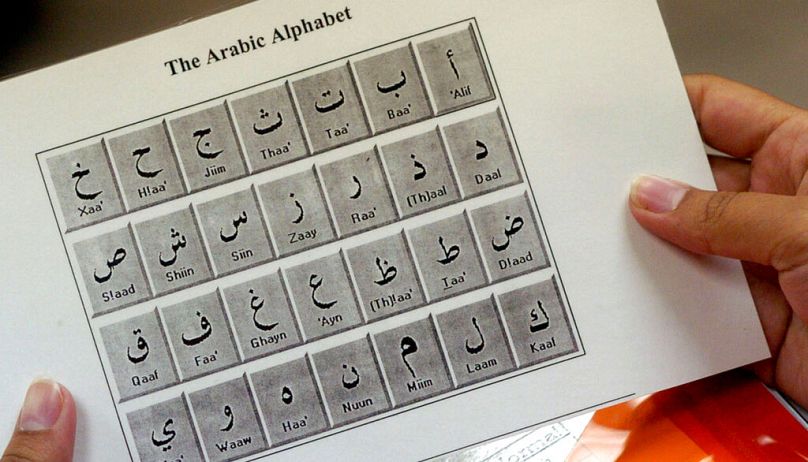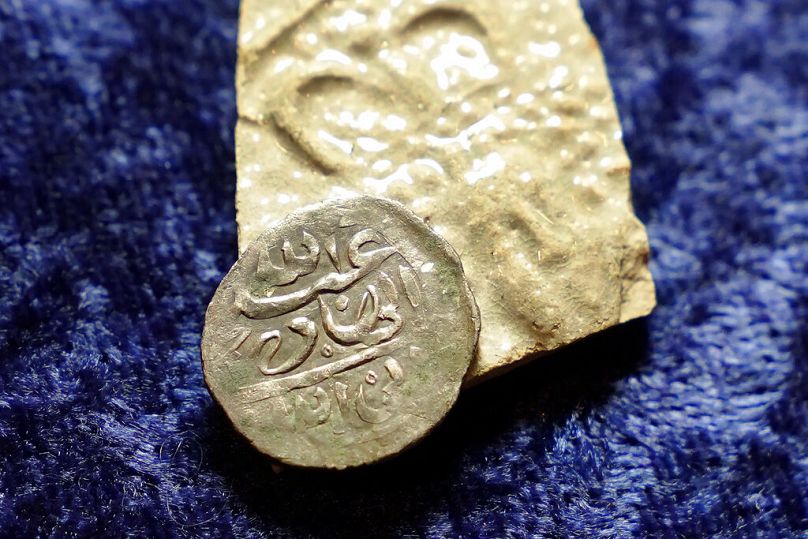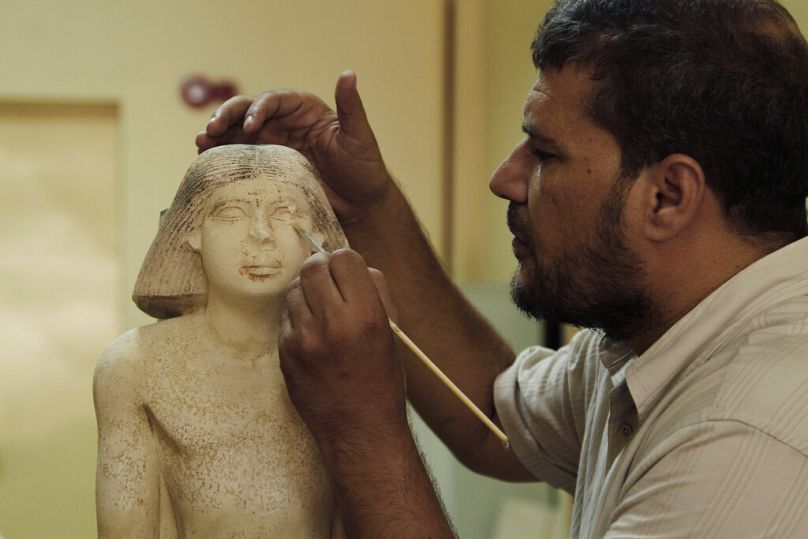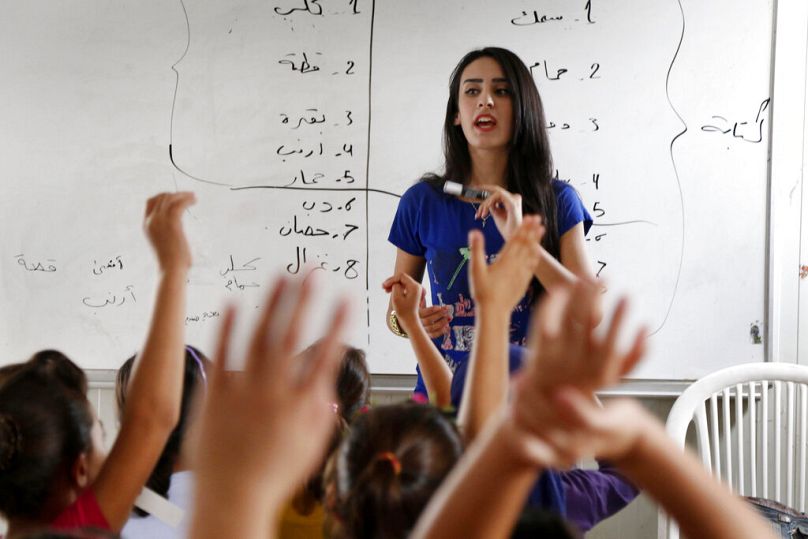In today's globalised world, proficiency in multiple languages is highly valued in fields such as diplomacy, national security, education, medicine, business and more, Julia Sylla writes.
As the new school year is approaching, talking about the reasons and motivations of students for learning languages feels more important than ever.
 ADVERTISEMENT
ADVERTISEMENT
 ADVERTISEMENT
ADVERTISEMENT
The recently released Language Trends Survey shows declines in language course enrolments across the UK and declining numbers of students taking the GCSE and A levels in modern foreign languages.
However, the number of students choosing to learn Arabic continues to climb, despite the slow growth of Arabic program offerings in schools. Why is that?
We should be opening doors to understanding
In the UK, as well as in the rest of Europe and the US, students are increasingly excited about learning Arabic, whether as a first/native/heritage language or as a modern global language.
This excitement stems from various motivations: Studying Arabic, along with Mandarin and other less-commonly-taught languages, is attractive to students who know that languages open doors to understanding the people and cultures of those who speak them.
Some students may be fascinated with literature or linguistic structures. Personal growth and self-confidence are also common factors; learning a language requires dedication and perseverance.
Finally, students may learn Arabic to unlock academic or professional opportunities that Arabic language skills provide.
“The more you learn, the more fun it gets,” Imara, a student of Arabic from Washington State in the US told QFI once, "and I think that’s especially true with Arabic. It connects you to such a beautiful culture.”
It's not just the heritage speakers — on the contrary
Arabic-as-a-first-language speakers in Europe and the UK can sometimes learn it at school, as with mother tongue policies such as in Sweden. Others learn Arabic in weekend or afterschool programs for family or heritage reasons.
Learning Arabic formally in school-based programs allows them to celebrate and preserve their connection to their cultural heritage.
Formal language education also enables them to earn credentials by passing national school exams (GCSE/A levels/Baccalaureate, Abitur, etc.), external language certifications, or by continuing their studies at the higher education level. With these credentials and degrees, students can use their language skills in professional settings.
Students who learned Arabic as a first language aren’t the only ones drawn to Arabic language education, however.
In fact, the majority of students studying Arabic in QFI-supported public secondary schools in the US have no heritage ties to Arabic.
Of the students who achieved external certifications for English-Arabic biliteracy from QFI-supported schools, one-third have no heritage ties to Arabic. 75% of those students listed English as their first language. What then draws them to the language?
It's a whole new world out there
Learning a new alphabet or script may incentivise students who love the artistry of the language.
Reading important canonical literature in Arabic is as attainable to students as reading Voltaire is for students of French, Cervantes for students of Spanish, and Shakespeare for students of English. Arabic draws students with a love of literature in its original forms.
Studying Arabic creates opportunities to travel, explore, and build friendships with students and communities worldwide.
Students interested in antiquities and archaeology might visit Egypt or Jordan, or the multilingual and multicultural Northern Africa region of the Maghreb. Students drawn to business and commerce can find new opportunities in the Gulf.
In today's globalised world, proficiency in multiple languages is highly valued in fields such as diplomacy, national security, education, medicine, business and more.
Studying Arabic unlocks these and other fields, giving students a competitive edge; Arabic skills demonstrate to potential employers that students value diversity and global perspectives, and they aren’t afraid of a challenge.
“Arabic has been absolutely vital and life-changing for me because of the experiences I’ve had that have helped lead me to where I am,” Sage, a radio reporter and journalist in Alaska, US, told QFI. Sage attributes her current career path back to her Arabic studies in school and at university.
Less-commonly-taught languages open up unique opportunities
Students also see opportunities to break down cultural and linguistic barriers within their own communities.
Arabic is a living language in many communities throughout Europe and the UK. Learning a language signals an openness to learning about something that may not be familiar, and it enables the exploration of new cultures.
Parents want their children to learn languages, too. They want to raise globally-minded citizens who can adapt and thrive in diverse settings, and they understand that speaking languages can lead to advanced language programs, scholarships, prestigious universities, and career opportunities.
Furthermore, parents want their children to appreciate and respect diversity; learning foreign languages is one of the means to achieving that.
As with any language, learning Arabic offers students practical benefits, a sense of fulfilment, and a deeper appreciation for rich and diverse cultures.
Students who studied Arabic shared with us that the language helped them broaden their horizons, provided unique opportunities, and enriched their personal and professional lives.
Across Europe, the US, and the UK, students are enthusiastic about studying Arabic, whether as a native language or as a modern global language.
Rather than putting languages in competition with each other for enrolment, schools can look to less-commonly-taught languages as an opportunity to build student interest in languages as an exciting, innovative and cutting-edge subject.
Julia Sylla is the Director of Programs at QFI, a Washington DC-based organisation committed to advancing the value of teaching and learning Arabic as a global language.
At Euronews, we believe all views matter. Contact us at view@euronews.com to send pitches or submissions and be part of the conversation.














